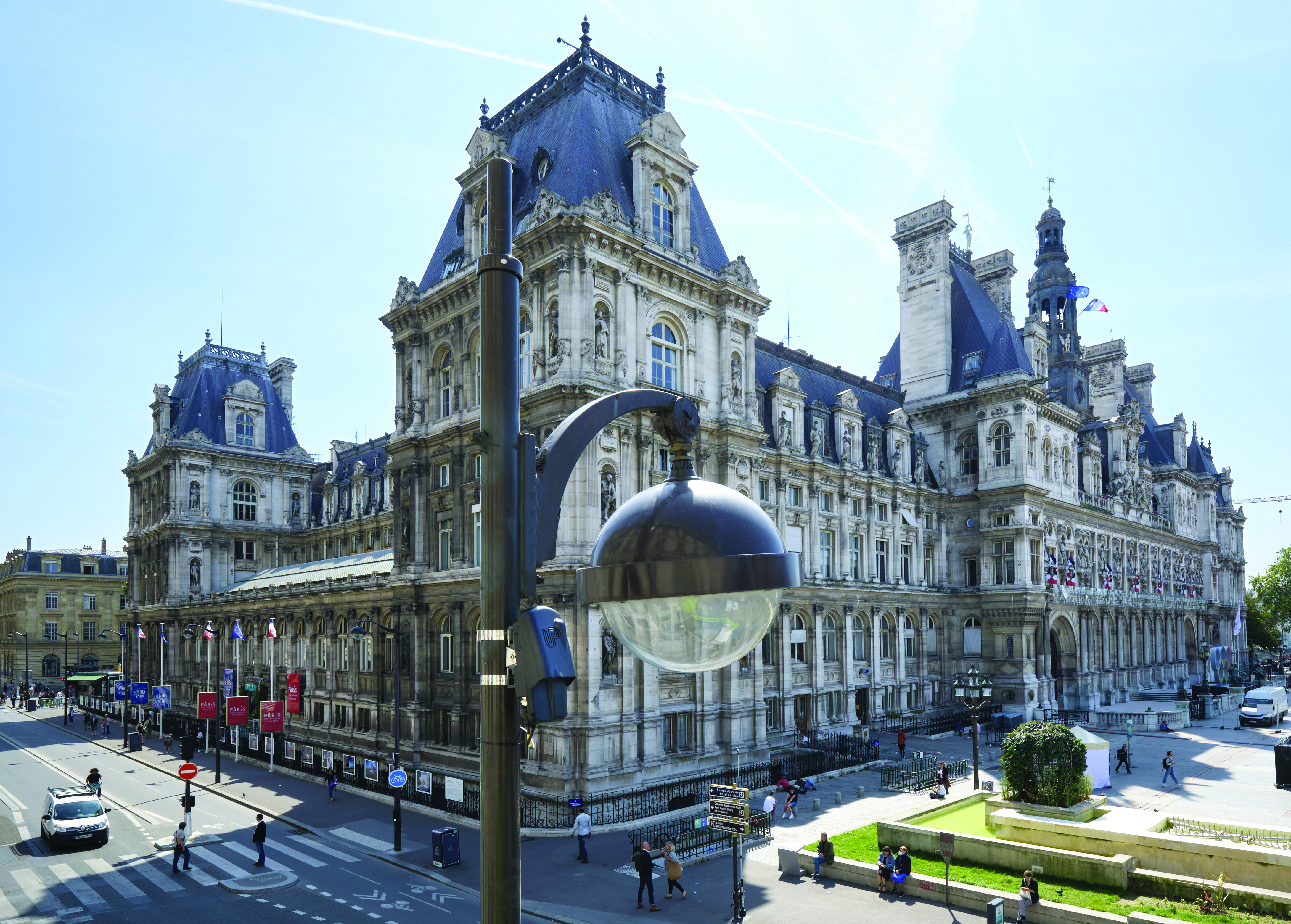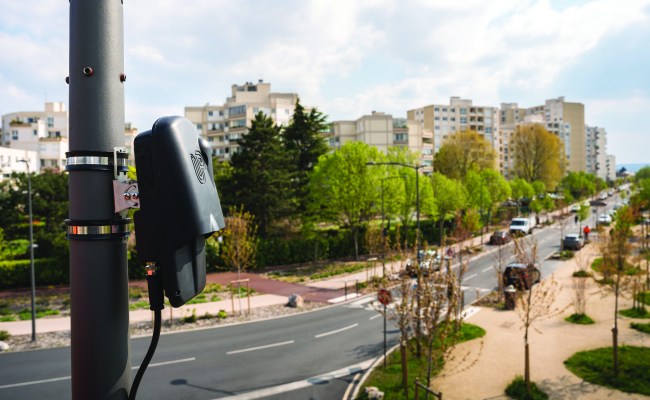Upciti is a French startup that has been working on a hardware sensor for city centers that is easy to install and maintain. This hardware module acts as the cornerstone of Upciti’s data management platform for local governments.
Unlike traditional security cameras, Upciti has been designed with privacy in mind. The startup focuses on using data to inform public policies, not data surveillance.
And the company secured $7.5 million (€7 million) in new funding this summer. Point Nine and Chalfen Ventures are leading the round, with existing investors Demeter and Innovacom also participating. As part of this round, the startup raised €6 million in a traditional equity startup funding round and €1 million in debt.
When I talked with Upciti’s founder and CEO Jean-Baptiste Poljak, what struck me is that the startup is based on some strong principles and design choices. It influenced the product design and it shows how a smart city company can help cities and respect everyone’s privacy at the same time.
Upciti started with a simple problem. When you’re driving in a dense urban area, it can be tricky to find a parking spot. The team tried to gather data with different hardware sensors, including ground sensors, infrared-based sensors, etc.
“But there was nothing that could really be deployed over an entire city. You could do bits and pieces here and there, but every time you had to ask for a construction permit, you had to dig up the ground — it was like hell,” Poljak told me.
Shortly after that, the company realized that it would be easier to use a camera on light poles. But Upciti didn’t pick any camera. The startup has been using low-resolution cameras with a very wide angle so that it can cover a large ground area with a single camera.
Why didn’t Upciti rely on existing security cameras? “It’s limiting because there aren’t security cameras everywhere,” Poljak said. “And there’s a huge issue as we thought that regulation was going to change and prohibit us from gathering 4K images of the street with faces, license plates, cars — where you can recognize everything.”
With Upciti’s low-resolution cameras, the company can’t identify faces, read license plates or even identify the car brand. “That’s what we call privacy by design. Even if tomorrow we’re going crazy and sell our company to North Korea, the images you can get out of this are like postage stamps, a face is 0.5 pixel,” Poljak said.
But with these sensors, Upciti’s sensors can identify if a vehicle is a car or a delivery truck. Those hardware modules can also count pedestrians crossing the street somewhere. Everything is processed on the street sensors directly. The images themselves don’t leave the light poles. Upciti only gathers text-based data through cellular connectivity.
“So that’s why we created our own hardware. It’s not because we want to make hardware, because frankly, if we could have done without it, we wouldn’t have made our own hardware,” Poljak said. “But this way we’ll be able to deploy our solution everywhere, we don’t have to worry about declaring cameras and we can focus on a single point of installation that’s managed by a single entity — public lighting.”

Image Credits: Upciti
A platform play
Smaller cities usually don’t have a data strategy. They work with several providers, but there’s no single source of truth where data is stored and can be reused for other services. Chances are cities have lakes and warehouses, but no data lake nor data warehouse.
Upciti’s data gathering sensors represent the first step of a bigger platform strategy. Upciti works with big cities like Monaco and Florence, but also smaller cities like Vannes, Lorient and Fécamp — it works with 56 cities overall.
And there’s no single use case, as cities often have different needs. For instance, Upciti can collect data about parking spots and then transmit that information to parking apps, such as PayByPhone or Flowbird.
In some cases, local governments want to limit car traffic by telling people where they should go to find a parking spot. In other cases, local governments want to tell people that they can go to the city center instead of heading to the mall because there are currently many empty parking spots.
Upciti wants to go one step further and help cities create data pipelines. “In Orleans, for example, street lighting is controlled according to actual traffic conditions,” Poljak said. If there are more than x cars driving past the Upciti sensor every 10 minutes, keep the lights on.
“We also count pedestrians. You might think ‘but, why?’ We have a use case in Florence, Italy, which for me is the most advanced use case. They’re having problems with overtourism. Basically, you get everyone at the same time, in the same place, in Florence’s main squares. So we’ve equipped Florence’s squares, we count the number of people in the square, and we send the information in real time to Florence’s tourism app,” Poljak said.
After that, the city can surface this information to tourists and display popular times (so that people can avoid them). They also use that information to send real-time offers to museums at the other end of the city.
Of course, that’s a use case that requires some API integration. Medium-sized cities don’t necessarily have a development budget. That’s why Upciti also provides a data visualization dashboard that is ready to use.
While there’s a hardware component, Upciti doesn’t sell its hardware sensors directly. It sells an access to its platform, which includes hardware sensors, the visualization dashboard, an API, etc.
Eventually, Upciti could become the main data platform for cities that don’t have one. Local governments could integrate data from other sensors and add data from open data sources. This is why it makes sense for Upciti to raise money so that it can flesh out its software platform.
The go-to-market strategy is quite elegant. The company signs new contracts with their hardware sensors and it could then become an essential vertical SaaS platform for local governments.

Image Credits: Upciti
